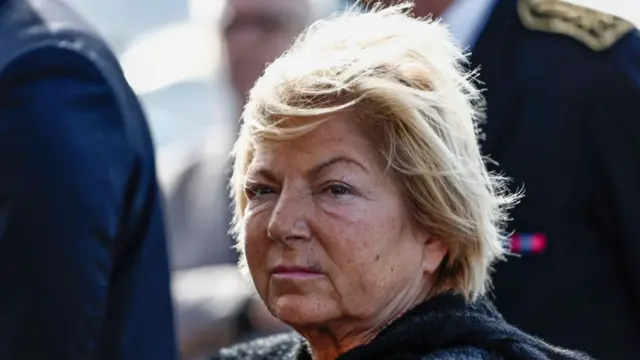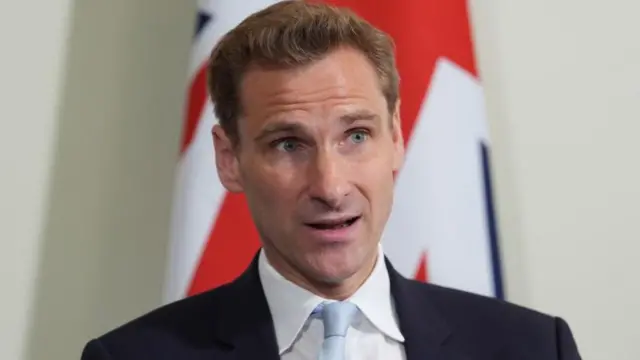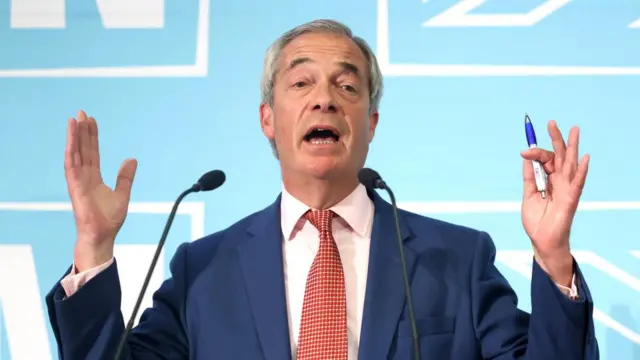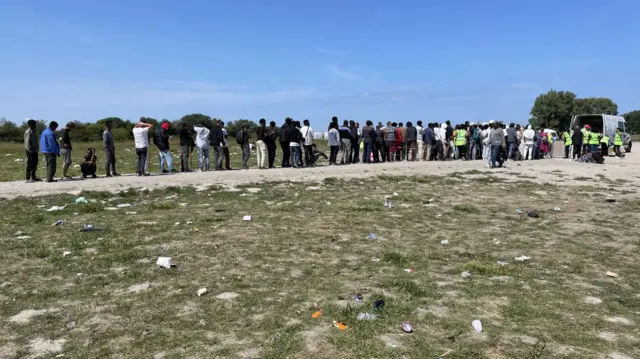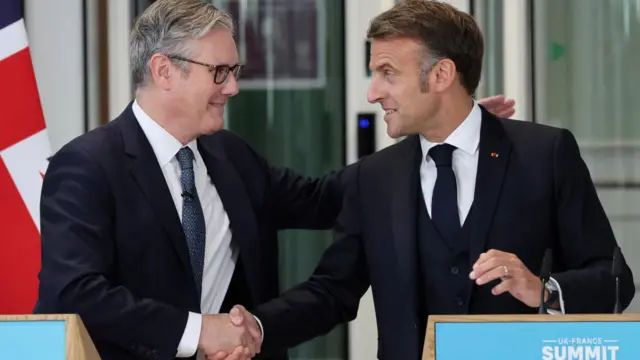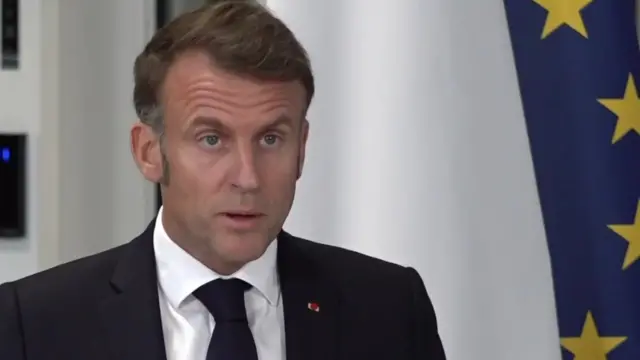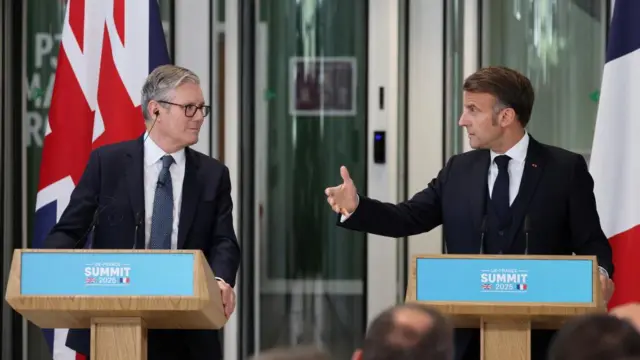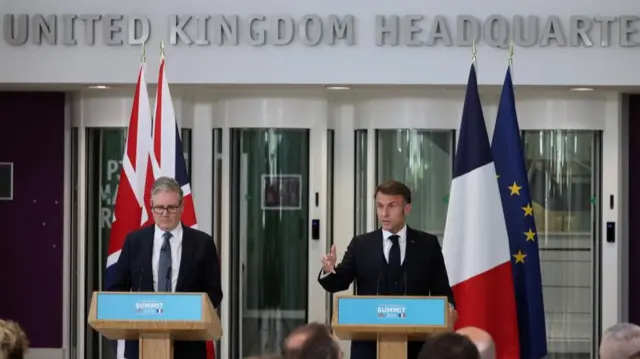'One in, one out', as Starmer and Macron unveil new migrant dealpublished at 19:14 BST 10 July
 Adam Goldsmith
Adam Goldsmith
Live reporter
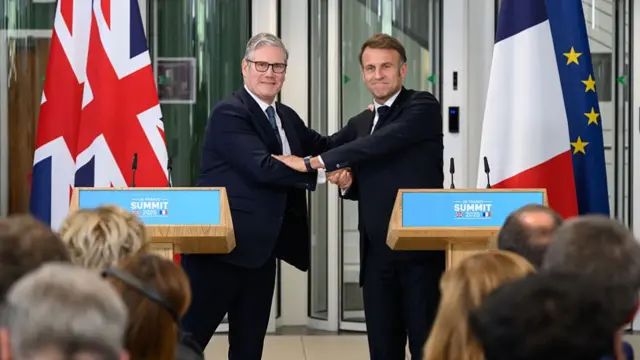 Image source, Getty Images
Image source, Getty ImagesOn the final day of his UK state visit, French President Emmanuel Macron unveiled a new initiative to tackle small boat crossings, hand-in-hand with UK Prime Minister Keir Starmer.
As more than 250 migrants took advantage of calm seas to arrive in Dover, Starmer unveiled a "one in, one out" policy for new arrivals, which he hopes will take effect within weeks.
This will see migrants arriving on small boats returned to France, in exchange for asylum seekers who have not tried to enter the UK illegally - our correspondent says this is an "experiment", but one the government thinks is worth trying.
Conservative shadow home secretary Chris Philp, however, says the deal offers "no deterrent at all", while Reform leader Nigel Farage - who spent the day on the seas near Dover - calls it a "humiliation for Brexit Britain".
We're still awaiting details of how exactly the new plans on immigration will work, but our home editor writes that it is just the first step in a potentially perilous journey.
Amid the agreement on immigration, Macron also declared that the UK and France will coordinate nuclear deterrence for the first time, after also aligning defence interests to buy more cruise missiles.
As Macron heads back to Paris, we're ending our live coverage here for the day. For more on the details of the new migration deal, you can check out our news story, which will be kept up to date with all the developments.


